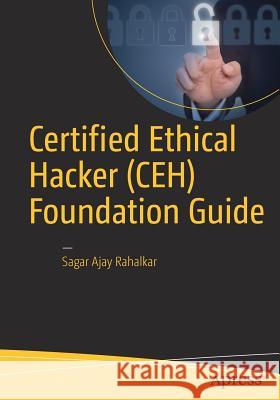Certified Ethical Hacker (CEH) Foundation Guide » książka
topmenu
Certified Ethical Hacker (CEH) Foundation Guide
ISBN-13: 9781484223246 / Angielski / Miękka / 2016 / 198 str.
Kategorie:
Kategorie BISAC:
Wydawca:
Apress
Język:
Angielski
ISBN-13:
9781484223246
Rok wydania:
2016
Ilość stron:
198
Waga:
0.39 kg
Wymiary:
25.4 x 17.78 x 1.19
Oprawa:
Miękka
Wolumenów:
01
Dodatkowe informacje:
Wydanie ilustrowane











